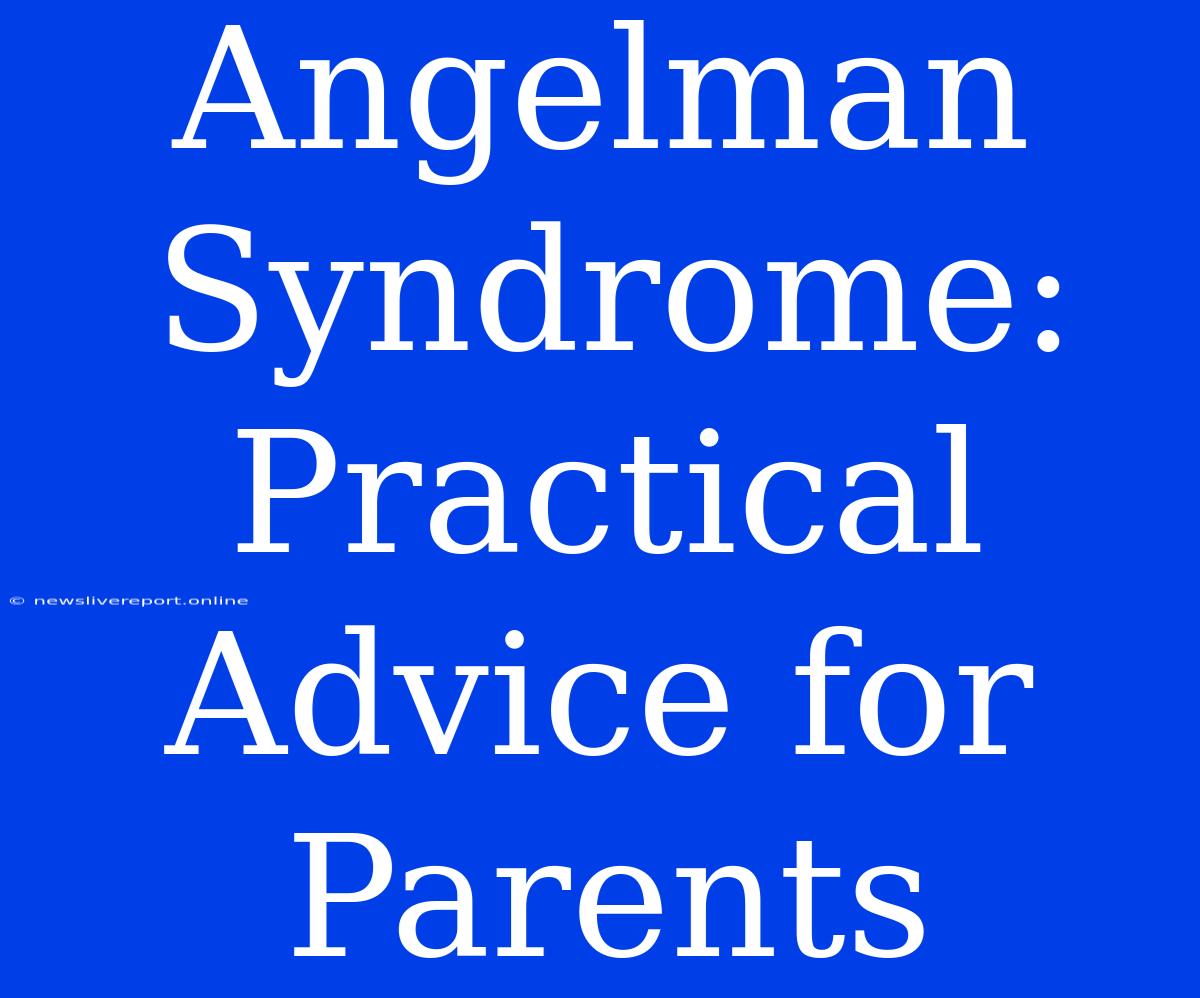Angelman Syndrome: Practical Advice for Parents
Angelman syndrome (AS) is a rare neurodevelopmental disorder that affects a child's development and overall well-being. While there is no cure for AS, early intervention and a supportive environment can make a significant difference in a child's quality of life. As a parent of a child with AS, you are likely facing a range of emotions and challenges. This article will provide practical advice to help you navigate the journey, empower your child, and create a fulfilling life for both of you.
Understanding Angelman Syndrome
H2: What is Angelman Syndrome?
Angelman Syndrome is caused by a genetic defect on chromosome 15. This defect leads to a range of symptoms, including:
- Developmental delays: Children with AS often have significant delays in speech and language development, as well as motor skills.
- Characteristic features: They typically have a happy demeanor, frequent smiling and laughter, a love of water, and hand-flapping movements.
- Intellectual disability: The severity can vary, but most children with AS have mild to moderate intellectual disability.
- Sleep disturbances: Many children with AS experience sleep problems, such as difficulty falling asleep and staying asleep.
- Seizures: Seizures are common in children with AS.
Practical Advice for Parents
H2: Building a Supportive Environment
- Early Intervention is Key: Early intervention programs can help children with AS reach their full potential. These programs can include speech therapy, occupational therapy, physical therapy, and behavioral therapy.
- Creating a Safe and Structured Environment: Providing a predictable and structured environment can help reduce anxiety and frustration for your child. This could include daily routines, visual aids, and consistent rules.
- Communication is Crucial: While speech may be delayed, children with AS can communicate in various ways, such as gestures, facial expressions, and assistive communication devices. Learning to understand your child's individual communication methods is essential.
H2: Managing Challenges
- Understanding Seizures: Work closely with your child's pediatrician and neurologist to manage seizures. Medication and other treatments may be necessary.
- Dealing with Sleep Issues: Establish consistent bedtime routines, create a calm sleep environment, and consult with a healthcare professional for strategies to improve sleep patterns.
- Behavioral Issues: Patience and understanding are crucial when addressing behavioral challenges. Positive reinforcement techniques and behavior modification strategies can be helpful.
H2: Empowering Your Child
- Focus on Strengths: Every child with AS has unique strengths and talents. Encourage and celebrate these abilities.
- Provide Meaningful Activities: Find activities that your child enjoys and can participate in. This could include music, art, swimming, or adaptive sports.
- Promote Social Interaction: Encourage social interaction with peers and siblings. Support groups and community activities can provide opportunities for connection.
H2: Finding Support
- Connecting with Other Families: Joining support groups and online forums can provide a sense of community and connection with other families facing similar challenges.
- Seeking Professional Guidance: Don't hesitate to seek help from therapists, educators, and specialists who specialize in Angelman syndrome.
- Advocating for Your Child's Needs: Advocate for your child's needs in school, healthcare, and the community. Learn about your child's rights and resources available to you.
Living with Angelman Syndrome: A Journey of Hope and Love
Raising a child with Angelman syndrome can be challenging, but it's also an incredibly rewarding journey. By understanding the condition, providing a supportive environment, and advocating for your child's needs, you can help them thrive and live a fulfilling life. Remember, you are not alone. Connect with other families, seek professional guidance, and embrace the joy and love that your child brings into your life.

